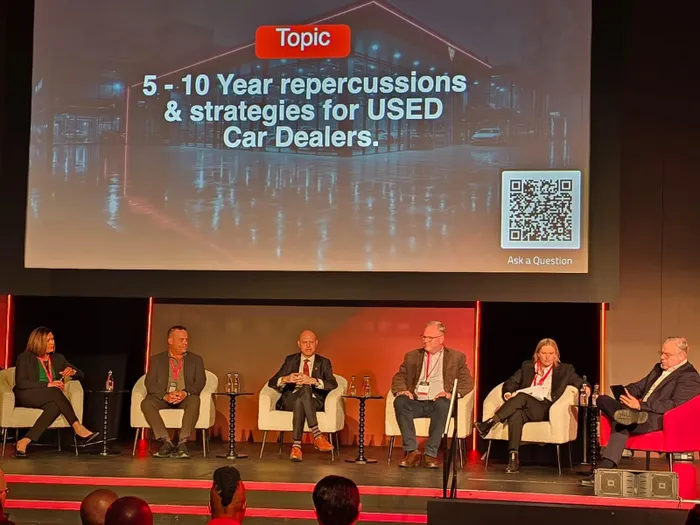
A report by Absa indicates that vehicles are becoming more expensive and consumers' finances are being stretched more to buy vehicles
Image: supplied
South Africans are stretching their finances further to afford cars as vehicle prices continue to rise faster than household incomes, according to a new Absa report presented at the inaugural DealerCon event on Thursday.
Henry Botha, executive for strategy and product at Absa Vehicle and Asset Finance, said the vehicle finance market is expanding but affordability has deteriorated sharply.
“Applications have increased by 65%, averaging 5% growth per year. Income levels have risen by 35%, and the value of vehicles being financed has grown by 54%. The catch, however, is that affordability has deteriorated,” Botha said.
“Ten years ago, the average monthly instalment represented 14.3% of a customer’s income. Today, it’s 16.1%. That’s a significant shift. What does this tell us? It tells us that while demand is growing, consumers are stretching further. Vehicles are becoming more expensive, and incomes aren’t keeping pace. This not only signals economic strain, but also of changing priorities.”
Botha said that while used vehicles continue to dominate the market – offering value, flexibility, and accessibility – new vehicles were gaining ground, especially among younger, aspirational buyers.
He also noted that women, mid-life buyers, and value-seekers are driving demand shifts, and that brand preferences also reflected changing demographics.
“When we look at manufacturer origin, we see fascinating trends: German brands remain the gold standard, especially among men and younger buyers,” Botha said.
“Chinese and Korean brands are rising fast, particularly among women and buyers aged 35 to 45. Women are open to new brands, technologies, and value propositions.”
Botha also said they found that the most active period was the 30 days following the lead.
“There is as much activity in that single month as there is in the six months before and the six months after. Interestingly, women are more likely to apply within 30 days at 40% compared to 33% of men,” he said.
“It means the window of opportunity is narrow and powerful. If we want to convert interest into action, we must act fast. However, this is not just about selling more cars. It’s about understanding the customer and their needs, their timing, their mindset.”
Charl Potgieter, managing executive at Absa Vehicle and Asset Finance, said generational differences are also shaping the industry. Gen Z buyers, like older generations, remain constrained by income but are highly digitally engaged and conduct extensive online research.
“Like previous generations, they’re constrained by income and tend to buy vehicles that match their budget and lifestyle needs. However, they are more digitally engaged, doing extensive online research before making decisions,” he said.
Potgieter added that Gen Z buyers remain brand conscious and tend to stick with established brands, showing hesitancy toward newer entrants.
“Adoption of new brands was more common among older, higher income segments who are willing to take more risks. Gen Z also values tech features and sustainability, but affordability remains their primary driver.”
Cars.co.za managing director Amasi Mwela praised Absa for supporting dealers during a time of structural change.
“There’s been such a shift in the industry over the last 10 years all of us have to change, adapt and move to the next frontier,” Mwela said.
BUSINESS REPORT